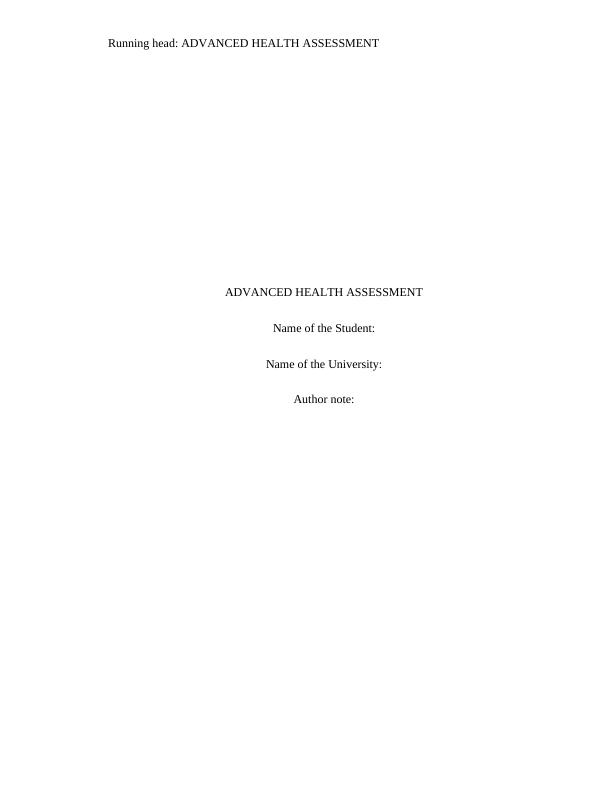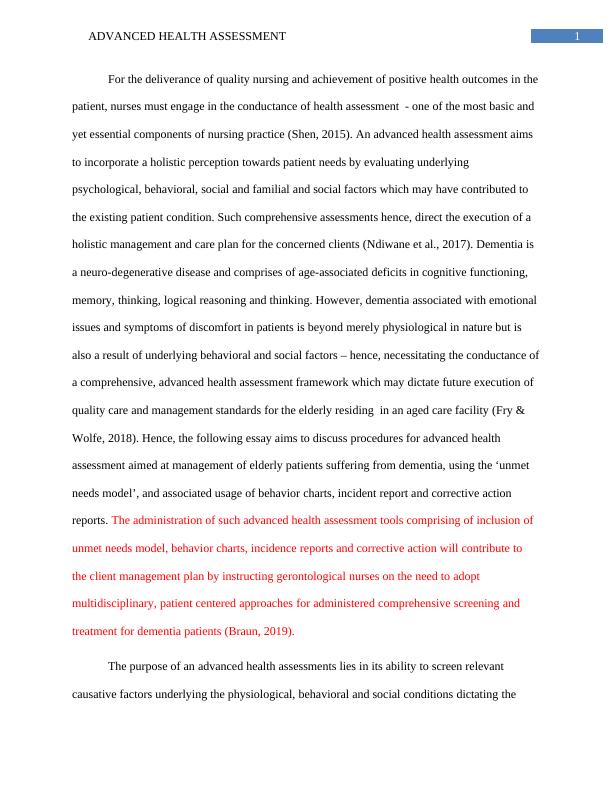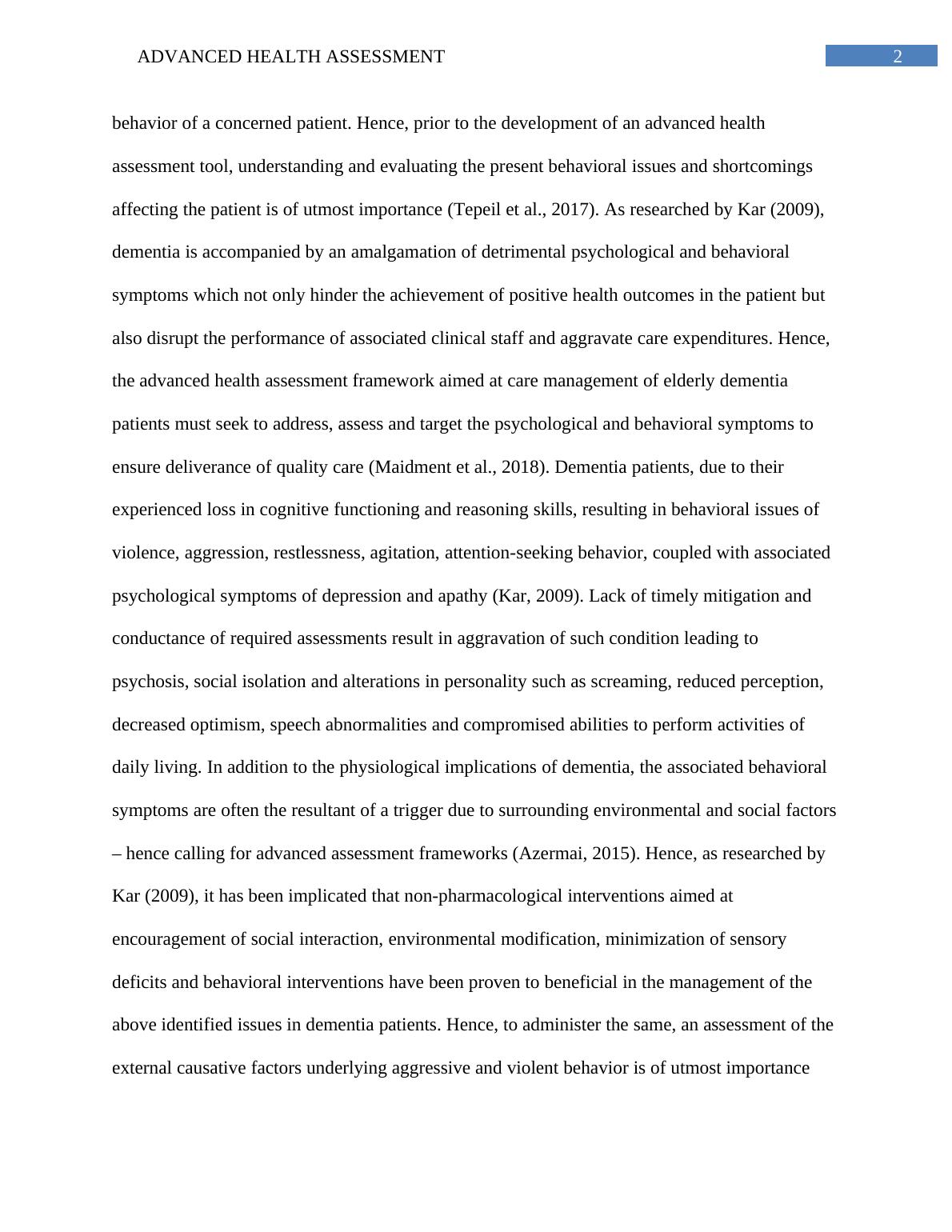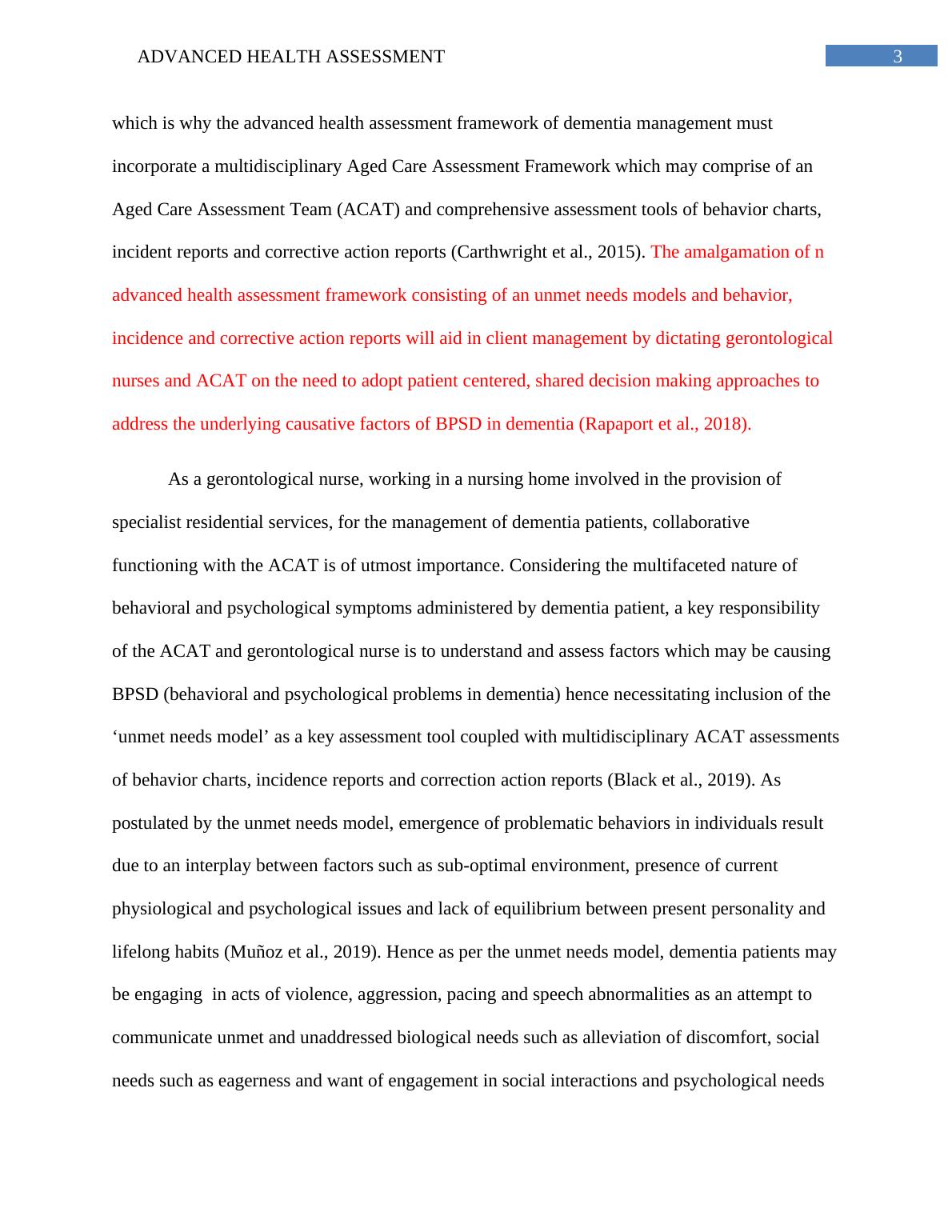Advanced Health Assessment for Dementia Management
Discuss how advanced nursing health assessment contributes to the development of management plans for clients and critique the role of findings in relation to practice requirements.
15 Pages4566 Words85 Views
Added on 2023-01-19
About This Document
This essay discusses the procedures for advanced health assessment aimed at the management of elderly patients suffering from dementia. It explores the use of the unmet needs model, behavior charts, incident reports, and corrective action reports. The essay emphasizes the importance of a multidisciplinary approach and patient-centered care in dementia management.
Advanced Health Assessment for Dementia Management
Discuss how advanced nursing health assessment contributes to the development of management plans for clients and critique the role of findings in relation to practice requirements.
Added on 2023-01-19
ShareRelated Documents
End of preview
Want to access all the pages? Upload your documents or become a member.
Identifying Gaps in Dementia Care
|17
|4909
|140
Research in Nursing - Assignment PDF
|12
|3330
|72
Healthcare for Elder people | Question and Answer
|9
|2405
|24
Case Study on Diabetes Management and Lifestyle Improvements
|11
|3053
|253
Ageism in Healthcare: Discriminative Practices and Prevention
|5
|993
|401
The woman is under treated
|4
|805
|13




